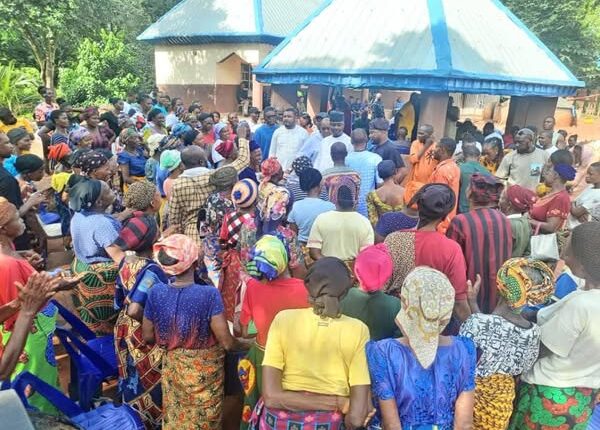When a leader genuinely knows and relate to the people they serve, a rare chemistry emerges that goes beyond politics and into something more profound and significant. This is the narrative of Chief Phillip Agbese and the Enone people. Their connection is one of trust, real progress, and mutual respect, not the conventional transactional relationship between a politician and constituents. With many leaders being distant figures these days, Okanga has stayed closely anchored among his people. He hears their hardships, honours their successes, and accompanies them on the road to a better future.
From the outset, Okanga’s style of governance has been guided by one basic principle: the people come first. Unlike leaders who vanish after elections, he has kept an open-door policy, conducting frequent community forums, town hall meetings and casual visits to villages throughout Ado, Okpokwu, and Ogbadibo. He listens, not only hears the folks. Okanga addresses the problems of the people not as theoretical public policies but as personal priorities. This openness has built him trust, far more precious than votes.
Trust is, however, only as strong as the deeds that support it. By so doing, Okanga has guaranteed that the residents of Enone experience and sense the influence of his leadership by consistently matching his words with tangible outcomes. Formerly run-down schools now cultivate young minds; former understaffed clinics now deliver excellent healthcare. These are lifelines, not only infrastructural milestones, that have given thousands back their dignity and chances.
Beyond simply bricks and mortar, Okanga’s greatest contribution to Enone has been the conviction that progress is possible, that government can serve the people, and that a better future is attainable.
Okanga’s unrelenting dedication to inclusiveness really distinguishes him. His leadership goes beyond political friends or metropolitan areas to include the most oppressed, the rural farmers, the struggling artisans, the women and the youngsters who have long been neglected. Many projects have helped him to guarantee that no one is left behind.
Enone’s inhabitants have reacted to this true concern with great loyalty. Their support for Okanga is a deliberate decision to side with a leader who has demonstrated, time and again, that he stands with them, not blind loyalty. In their words “Okanga is different”. You hear it in markets, churches and village squares. He is among us.
In many constituencies, the bond between leaders and the people is fragile and easily broken by unmet promises. In Enone, however, Okanga’s relationship with his people is something much deeper: a pact of mutual respect and shared development. He views them as partners in development rather than as only voters to be sought in elections. Similarly, the individuals view him as a brother, a champion and a reliable keeper of their shared hopes rather than as a remote authority figure.
The narrative of Okanga and Enone serves as a stark reminder of what governance ought to be: a holy link between leader and people grounded in service, responsibility and a common vision. Enone is evidence of the changing ability of leadership that really cares as other areas struggle with disconnection and discontent.



